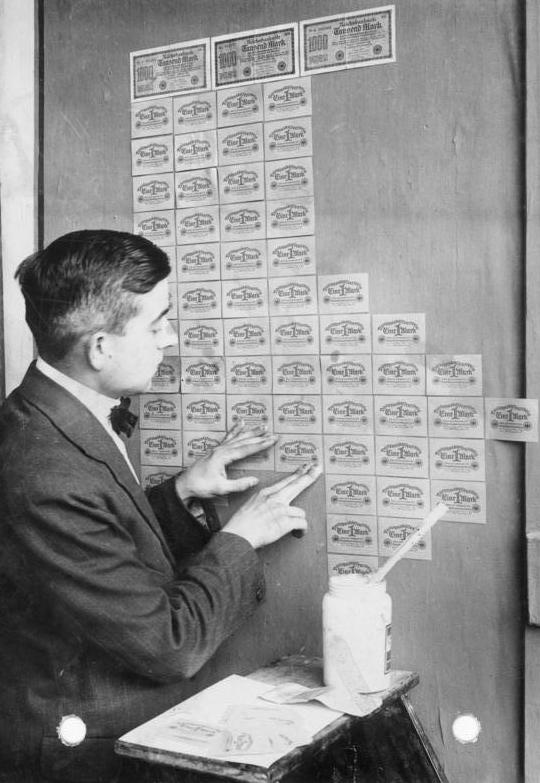I turned 59 a few weeks back, and it's dawning on me that I can no longer take good health and general wellbeing for granted. This winter was a wakeup call in that respect. I fell down a darkened staircase, I got petty badly beaten up by it, and the recovery was slow. Typical old man stuff in other words.
Things got a little out of whack during the recovery. I got terribly constipated from lack of physical activity, and my libido fell through the floor. It was clear that I had to do something. Nature wasn't going to fix this on its own.
Remedies that work
This is how I rediscovered cumin seeds. Within a few days of taking a pinch of this every day, my digestion was back in order. In fact, it was better than it had been in a long while, which served to prove an important point: With the right remedy, I can turn back the clock as it were. I'm taking my daily dose of cumin seeds, and I feel decades younger as far as my digestion goes.
With this success fresh in mind, I figured it might be possible to regulate my libido in a similar fashion. There might be some food or exercise that can bring me back a few decades as far as sexual appetite is concerned.
As it turned out, I found nothing helpful in terms of food. Testosterone levels are not a function of some food intake. Rather, it's a function of physical activity. I remembered an article I saw some time ago where it was pointed out that the current decline in male fertility rates that everyone is fretting about is nothing more mysterious than a lack of physical exercise.
Kegel exercises
I also found some articles on so called Kegel exercises for men. Unsurprisingly, libido and testosterone levels can be regulated by physical exercise of the hips. Women seem to have figured this out themselves, with twerking being all the rage these days. I strongly suspect that women who twerk experience an elevated libido, and I figured that the male version of twerking might work just as well for men.
As it turned out, it works wonders. However, the exercise is so outlandish that many would rather go for something less effective. Kegel exercises that I found described in articles on the web never mentions the obvious. They prescribe disciplined little routines that are but a shadow of what a truly effective Kegel exercise for men looks like.
The whole point of Kegel exercises, both for women and men, is to strengthen the internal muscles that keep our abdomen in place. These muscles are only vaguely controlled by us at the conscious level. We can for example control our peeing by will. However, the Kegel muscles are mostly automatic. They kick in when provoked. Hence, Kegel muscles are best exercised by vigorous hip exercises such as twerking. And for men, it should be done naked from the waist down.
It's not a pretty sight. But it's very effective. My libido was back in no time, and as with the cumin seeds, I'm feeling decades younger. Some of this may be simply spring weather, which always brings out the testosterone in me, but most of my renewed virility is no doubt due to a few minutes of vigorous male twerking every day.
So, it turns out that I can control my digestion with cumin seeds, and I can control my libido with a few minutes of exercise. This doesn't make me any younger, of course. But it does make me feel younger, and general wellbeing is in the end all that matters when it comes to health.
Simple remedies
I never understood the modern obsession with measurements of blood pressure, cholesterol levels and the like. If a person feels well and happy, he's hardly going to keel over due to any of that, so it doesn't matter what the measurements say. All that matters is whether or not the person in question is feeling well or not. As the saying goes in Norway: if you eat well and sleep well, you will almost never die.
Going forward, I'll have to pay better attention to how I feel, and now that I know that a lot can be achieved with simple remedies, I'm almost looking forward to the challenge. I'll note down what problems I have, and I'll share any remedy I come across.
What I've noticed so far is that little things that were mere nuisances when I was younger have gotten worse with age. The only exception to this has been a pain in my back that I got from a car accident when I was 17. That problem has become less lately, and the only explanation I can think of is that I'm closer to my ideal weight now than I used to be. I used to be a little on the skinny side. Now, with more fat on my bones, my back has improved. I guess that it must be that a little bit of fat helps regulate body temperature, which in turn helps muscles stay relaxed and not tense up needlessly.
Secondary effects
The lesson here is that some things improve due to some other improvement. Putting on some weight has been good for my overall wellbeing. It calms my nerves. It makes me feel stronger and happier. A secondary effect of this has been that my bad back improved.
As for the cumin seeds, there seem to be some secondary effects of those as well. I've had a fungus problem with my skin and toe nails ever since my late teens. It was for a long time a minor problem. But it was nevertheless impossible to get rid of, and the problem has been getting worse over the years. However, the cumin seeds seem to have had a positive effect on this. The problem hasn't gone away, but my most fungus infected foot has improved.
A more obvious secondary effect of cumin seeds is that I no longer have any trouble with haemorrhoids. This problem, which I've had since my late twenties is pretty much gone, which goes to show that the cumin seeds really have made me younger by several decades when it comes to general wellbeing, at least in this particular case.
With my digestion improved, I feel less bloated, and my belly has flattened by a notch on my belt.
Feeling great
A secondary effect of some rigorous twerking a few minutes a day is that this works up a pulse. It's similar in effect to a short sprint. The heart pumps a little stronger. There's a bit of a sweat. Afterwards, I feel thoroughly refreshed and relaxed.
The exercise has also helped further flatten my stomach. It has taken down one more notch on my belt, making the total reduction a full two notches from my most bloated and unwell past.
Higher testosterone levels also have the rather obvious effect of making me a better bedfellow for my wife. I'm also more appreciative of the lovely young ladies that I see on the street of Porto. I'm in better shape and I feel better.
All of this has been achieved with a minimum of time invested. We're talking a few minutes a day, so it's a clear winner as far as strategy goes.
Conclusion
My thinking is that any remedy that doesn't give any noticeable effect within a few days isn't worth our attention. Remedies should be convenient and easy to do. They should be agreeable with an immediate or semi-immediate feedback of wellbeing, and they should be natural and cheap.
This strategy focuses entirely on wellbeing. It excludes by default any medicine that is administered merely because of some measurement made in a doctors office. It also embraces Placebo as a friend rather than a foe. If something works, who cares if it's only in the mind?
When looking for remedies, it makes sense to look for the most obvious solutions first. In my case, I knew from years ago that cumin seeds work wonders. I also knew that libido sits in the hips and is related to exercise. I've simply applied what I've known for a long time. All that it took to bring this knowledge back was some pondering and some internet searches.
 |
| Feeling good |









